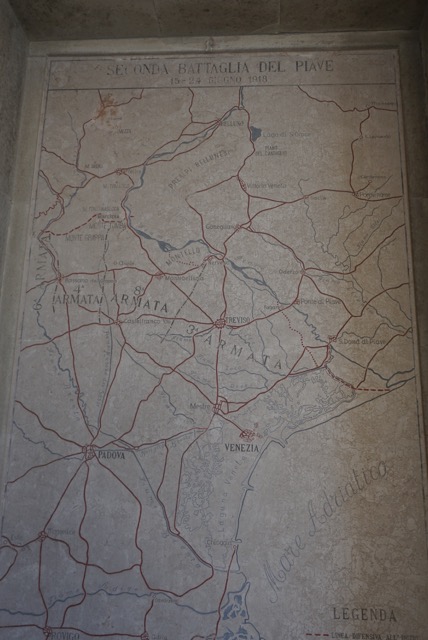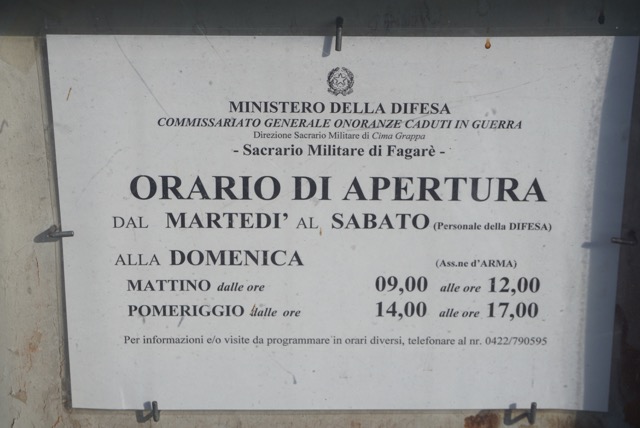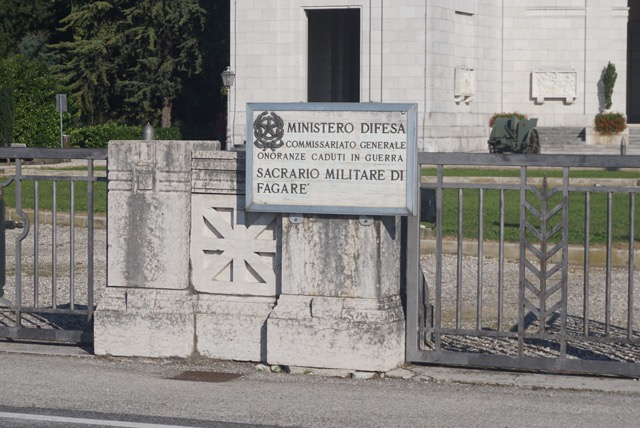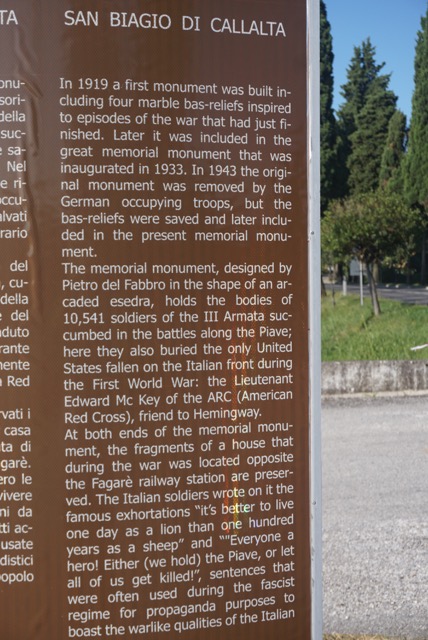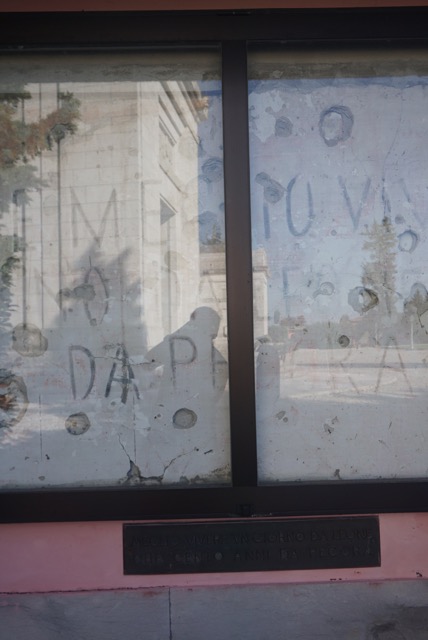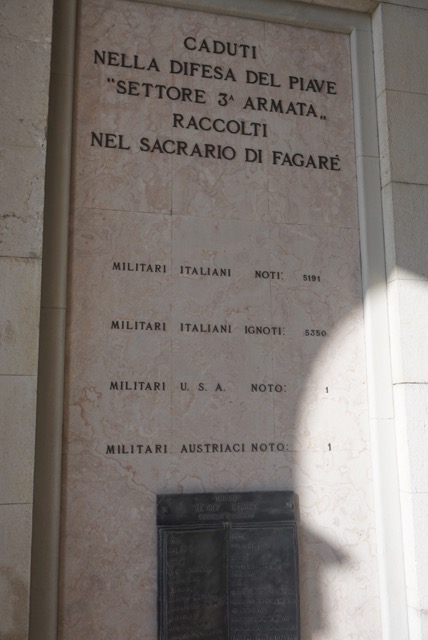Hemingway Poem to Edward McKey Bronze Plaque
Details:
The bronze is located on the left side, floor level, in the chapel which is in center section of the memorial (Sacrario Militare di Fagarè).
The memorial is a bronze plate about 2 ft by 2 ft. It is mounted to a marble wall within the chapel of this Italian World War 1 Memorial.
The bronze is inscribed with a poem the American Author, Ernest Hemingway wrote about the death of his friend and fellow American Red Cross Volunteer Lieutenant Edward McKey who was killed in Italy in World War 1. McKey is buried in the walls of this memorial in the far right vestibule of the memorial. (See ISOB McKey on this website)
The memorial bronze is located with the Military Memorial of Fagarè where over 10,000 Italian soldiers (5,191 Known and 5,350 unknown) are buried. The soldiers buried here died in the two Battles of the Piave River – “The Sacred Piave” in 1917/18: The First and the Second (the second also known as the Battle of the Solstice). The memorial location itself represented the farthest advance west across the Piave by the Austro-German attack precipitated at the Battle of Caporetto in October 1917. In addition to the burial sites, the military memorial houses a small museum and some famous original graffiti to include the line: “Meglio di vivere un giorno da leone che cento anni di pecora”- “Its better to live one day as a lion, than a hundred years as a sheep”
Both McKey and Hemingway served on the Piave Front front during World War I receiving their wounds in nearly the same location near the town of Fossalta di Piave (See Hemingway Wounding Site on this website for more information).
Monument Text:
Written across the top of the bronze in Italian, reads:
TENETE
MC KEY EDWARD
MEDAGLIA D’ARGENTO
Translation into English:
LIEUTENANT
MC KEY EDWARD
SILVER MEDAL
Under this portion, Hemingway’s poem is inscribed; on the left in English; on the right in Italian. The English side reads:
Killed, Piave, June 18
Desire and
All the sweet pulsing aches
And gentle hurtings
That were you,
Are gone into the sullen dark.
Now in the night you come unsmiling
To lie with me
A dull, cold, rigid bayonet
On my hot-swollen, throbbing soul.
ERNEST HEMINGWAY - FOSSALTA DI PIAVE 8 LUGLIO 1918
The bottom of the bronze lists the patrons of the piece:
“Amici di Giovanni Comisso” and “L’Instituto Nastro Azzuro di Treviso”



